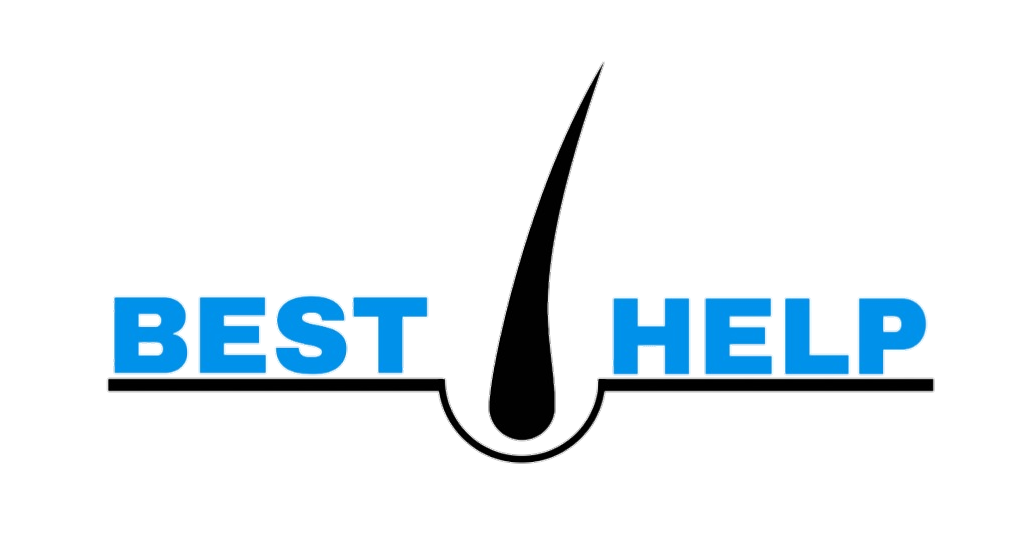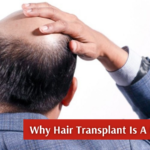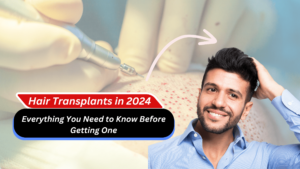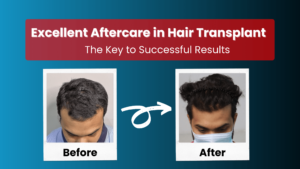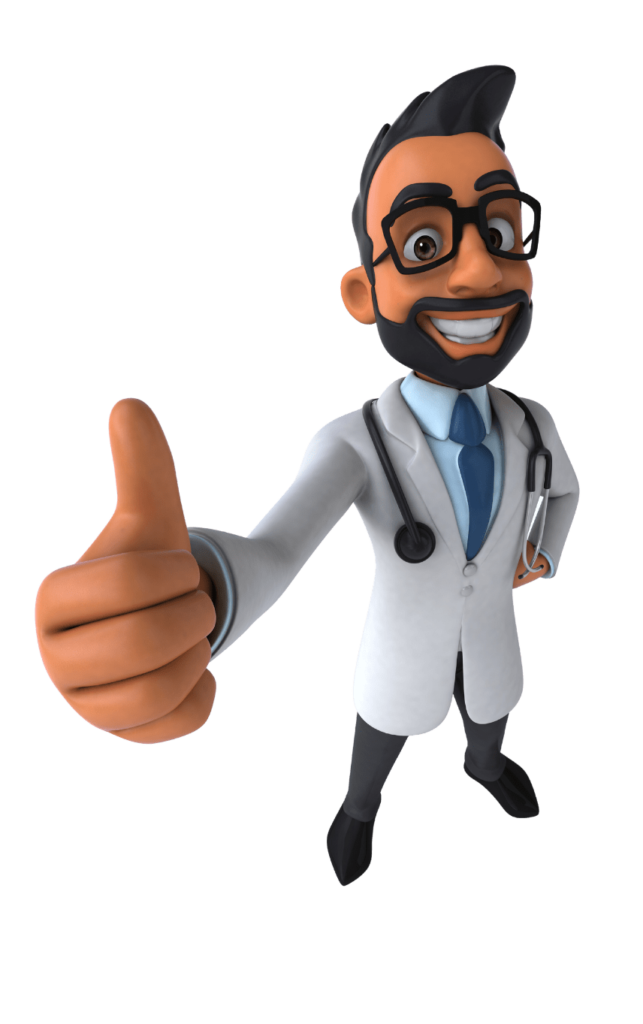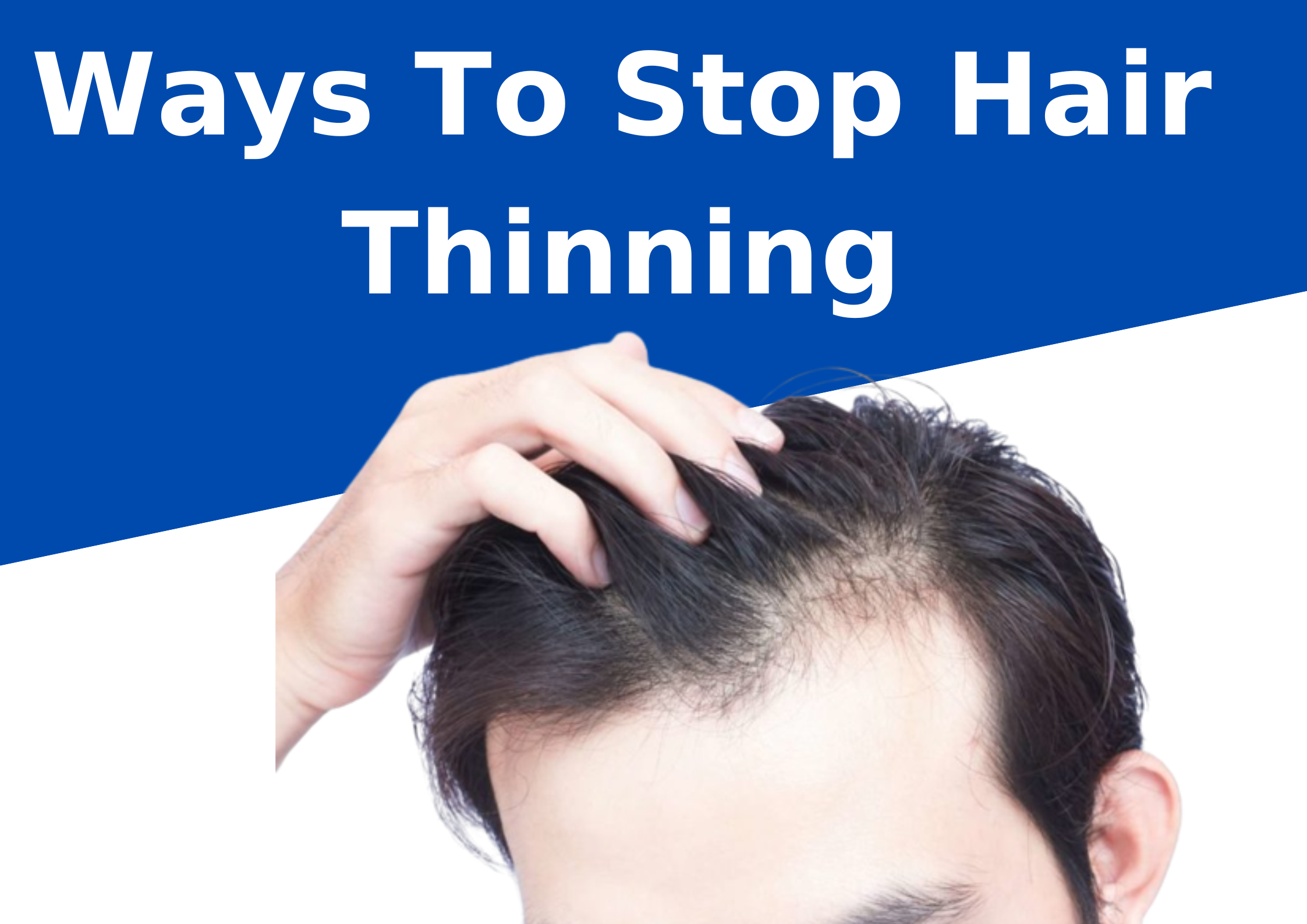
To lose is natural; let’s keep the process healthy.
Hair loss to some degree is common, as hair may start to shrink in volume and strength with time.
50-100 hair per day – is a safe count for hair fall. This loss can easily be reverted as New hair is regrown from the hair follicles subsequently.
With age, The follicles that produce hair and the hair shafts become thinner, and the hair begins to lose hue.
If you experience noticeable hair loss or the appearance of patches of hair loss, it could be a sign of hair loss. The person can treat the causes of hair loss and may delay the process significantly.
The following sections will examine possible causes for thin hair.
Female or Male Pattern Hair Loss
Pattern loss in medical terms is referred to as androgenetic Alopecia. The hormones and genes are the leading causes of androgenetic Alopecia, a common reason for hair loss.
It is a problem that affects Billions around the globe.
As per some legit research, the probability of suffering from androgenetic Alopecia rises as you get older. However, it can also be a problem for teens, which is more likely to affect women following menopausal symptoms.
Many times, those suffering from androgenetic hair loss have family members with the same condition.
Males lose hair in the hairline from the rear on the back of their heads. For females, it tends to be a problem for the top of the head.
Alopecia areata
Alopecia areata is an illness that causes hair loss in patches of roundness located on scalps. It also affects hair loss in the beard, eyebrows, and other areas where there is hair.
It usually occurs in the earliest years of life, and environmental factors and genetics are the main cause.
When you suffer from alopecia areata, hair follicles remain alive, and hair may regenerate. Doctors can treat alopecia areata with an injection in the scalp each 4 to 6 weeks for six months.
Diet
The body requires nutrients to build new hair strands and keep healthy hair follicles.
Protein is an essential part of the hair. Micronutrients, which include vitamins and minerals, play an essential part in the growth of hair follicles. Cycle.
Insufficiency, as well as vitamin deficiencies, could result in hair loss. A healthy, varied diet can aid in the growth of healthy hair, which is healthy and healthy.
A healthy diet will also help stop the symptoms that indicate damaged hair
-
brittle hair shafts
-
A dull appearance
-
Dryness
-
Dandruff
Vitamin D deficiency
Vitamin D stimulates the hair follicles and results in the growth of hair. If a person doesn’t get enough vitamin D, the body may suffer hair loss, along with other signs.
A few studies have found a link between the deficiency of vitamin D to Alopecia areata.
Find out more about the deficiency in vitamin D or losing hair.
Stress
Following a period of intense stress, People might notice that their hair appears less brittle than usual. This is referred to as telogen effluvium.
When stress results in hair loss, People usually notice their hair growing back to its standard size after the stressful situation has begun to end.
Health professionals can assist patients in coping with stressful times. Talking therapy and behavioral therapies can be helpful. Individuals can also look into natural methods to deal with anxiety and stress.
Pregnancy
Hair loss can be noticed either during or after pregnancy. The hair usually returns without treatment.
Treatment
It is possible to try prescription drugs to treat thinning hair.
The Food and Drug Administration (FDA) has officially approved two prescription medications for treating androgenetic hair loss: Minoxidil and finasteride.
Minoxidil
Minoxidil is available in two and five percent treatments. It is applied directly to the areas where hair is thinning.
It is a safe as well as an effective method of treating androgenetic AlopeciaAlopecia.
It can take between 6 and 12 months before hair’s growth begins to increase. Minoxidil users will need to continue taking it continuously, or else hair loss could be a regular occurrence.
The side effects of taking minoxidil may be:
-
contact dermatitis
-
skin irritation
-
excessive hair growth
Finasteride
Finasteride (Propecia) is an oral medicine. Those who suffer from hair loss are advised to take 1 milligram per day. It is a prescription medication for men who have tried minoxidil with no success.
Finasteride can cause side effects that could be:
-
erectile dysfunction
-
diminished in libido
-
Gynecomastia or the expansion of the breast tissue
Home Remedies
It is also possible to try various home remedies to boost hair growth.
But it is true that not all home remedies have a scientific basis. Therefore, individuals must consult a physician before attempting any new remedy at home for hair loss.
The studies on natural remedies are numerous and have shown promising results. But, these treatments do not yet have FDA approval, and further research is required to confirm their effectiveness.
The following section will look at the home remedies people can try to help treat thin hair.
Consume hair-healthy food
Diet plays a significant factor in the health and strength of hair. Proteins, fats, and certain minerals and vitamins are particularly important for the health of your hair.
Some people notice the improvement in their hair growth when they increase certain food items in their diet.
Foods that could increase the growth of hair include:
-
Eggs: These contain protein that is vital to grow hair. They also contain biotin, the B vitamin that can improve hair growth, but mixed research findings.
-
Brazil nuts The nuts are rich in selenium, a mineral that can improve hair’s health.
-
Fatty fish: This is a good source of omega-3 and omega-3, aiding in hair growth.
-
Walnuts also have omega-3.
Make sure you get more vitamin D
Vitamin D deficiency can lead to loss of hair. The treatment of this issue could help aid in reducing hair loss.
The majority of people get their vitamin D through exposure to sunlight and diet. The foods that are high in vitamin D include:
-
Fatty fish
-
Beef liver
-
cheese
-
egg yolks
-
mushrooms
-
food items that are fortified, like cereals, pints of milk, and juices
Try essential oils
Many people utilize essential oils to increase hair growth. There isn’t much research on these oils’ efficacy; however, they’re unlikely to cause harm.
When using essential oils, one must always dilute them with an oil carrier such as coconut oil or jojoba oil to prevent irritation. Learn more about the benefits of carrier oils here.
Rosemary oil
Certain animal studies suggest that rosemary oil could increase blood flow and thus improve the overall health of the scalp. Healthy scalps are essential for healthy hair growth.
One trial in 2015 compared rosemary oil to minoxidil 22%. After six months, participants who applied rosemary oil and minoxidil applied to the skin saw significant growth in hair.
Peppermint oil
Additionally, it can stimulate blood circulation. Peppermint oil has demonstrated promise as a treatment option for thin hair.
In a 2014 study on animals by a Trusted Source, researchers found that, compared to treatments that used sodium chloride, Jojoba oil, and minoxidil 3 %, treatments with peppermint oil produced the highest growth hair over four weeks.
They measured the growth of hair by measuring hair thickness, follicle numbers, and follicle size.
Additional oils
Many people also apply these oil listed below to grow hair:
-
cedarwood
-
Lavender oil
-
tulsi oil
-
Thyme oil
-
Scalp massage
Massage of the scalp can help boost blood flow, and this could, in turn, increase the growth of hair. A gentle massage of the scalp using essential oils may bring additional benefits.
Doctors can often determine the reason for hair loss by studying the pattern of loss of hair.
They could ask a person about:
-
Their current diet
-
any pre-existing medical condition
-
hair loss in the family. hair
-
an ancestor’s history of medical issues that could cause hair loss
A doctor can send samples of hair or scalp to a lab to be tested further. In certain instances, they may request testing for blood to exclude conditions that cause autoimmune disease.
When is the best time to visit a doctor?
-
A change in diet or supplements intake can sometimes result in hair loss. If the problem persists for long, talk to a doctor.
-
Asudden, You have started losing a lot of hair for no known reason, and it is affecting your mental health; consult a doctor.
